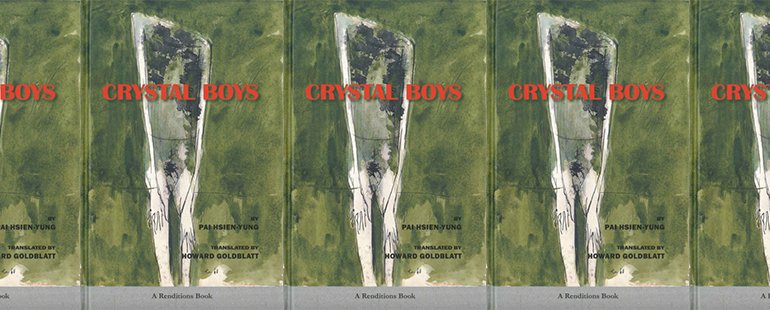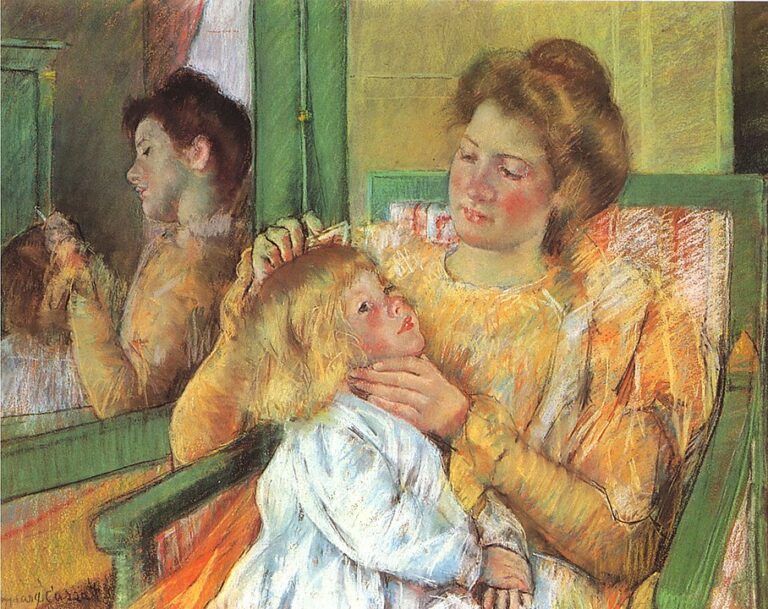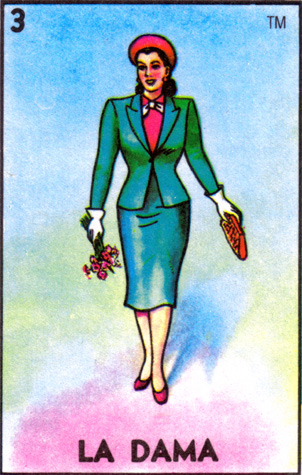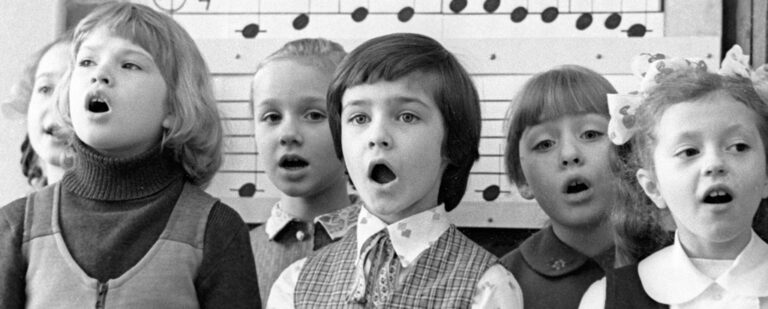Beauty and Crystal Boys

In 1983, Pai Hsien-Yung published his only novel, Niezi (Crystal Boys in the English translation). During a time in which homosexuality was actively criminalized in Taiwan, Pai’s story of a group of gay teenage prostitutes in Taipei’s New Park was met with great scandal, shock, and, most importantly, confusion. Crystal Boys is a story of exile: the narrative centers itself on the transience of home, and the chaos of the birth-family, in order to argue that home does not come from location, but from aesthetics—from beauty.
Beauty is the lens through which Pai understands the past. On paper it seems that Pai is the quintessential traditionalist writer: he denounces the People’s Republic while having a near rosy opinion of traditional China, and a deep love of tradition and its art is evident in his writings and interviews—some of his favorite works are Peony’s Pavilion and Dream of Red Chamber, representative texts of the dynastic Chinese era, and he honors them through allusions in his own writing. Yet, Pai’s relationship with both tradition and beauty is troubled by his focus on—and borderline empathy with—destitution and gay shame. Beauty is how Pai defines the past, and how he, therefore, defines home.
Critic C.T. Hsia says that Pai’s writings focus on the contrast between “the diminished lives led by the Chinese in Taiwan and America with their more glorious or heroic past on the mainland.” They are imbued with the tensions between past and present, shame and beauty. In Crystal Boys, shame and tragedy color every character’s narrative; Pai frequently compares the boys to lost birds or fallen angels. A-Qing, the main character and narrator, was thrown out of his home after an affair with a chemistry teacher is discovered by the school. Mousey can only go back home to his abusive brother. Wu Min loves older men he cannot have. Little Jade sells himself so he can one day meet a man who can take him overseas to Japan to find his birth father. These teenagers, along with the other constituents of New Park, seem to be marked by two distinct periods: the distant past, and their current reality in exile.
If we follow Hsia’s reading of Pai’s works, arguing that the characters’ present is diminished while Pai’s representations of the past are “unequivocally” beautiful, it seems that Pai sees and depicts gayness, and its physicality, as a form of diminishing, a degeneracy caused by a separation from home, and ultimately an irreconcilable separation from the beautiful past. Considering that at the time Crystal Boys was initially popular due to its scandalous nature this reading holds some ground. The book’s original title, Niezi, which translates to “sinful son” or “bad son,” indeed establishes, from the very start, a narrative centered on degeneracy—not just of the self, but of ancestry. In contrast to his reverence for beauty, in characterizing estrangement Pai seems preoccupied with exilic shame. By cloaking the “crippling sorrows of estrangement” with longing, however, his exiled characters are provided the opportunity to redeem their shame, following a narrative arc typical of the exilic literature genre, in which dignity and heroics cannot be assumed to be accessible.
This longing is present in each of Pai’s exiled characters: Little Jade makes a conscious effort to be beautiful, “prancing back and forth on the steps in a pair of three-quarter-length boots, handsome and fetching,” yet this stylization comes from the single-minded determination to find a man who can take him out of his current poverty in Taiwan. A-Qing is constantly mourning his lost brother and cannot find it in him to forgive his father. Wu Min needs the love of other men to live. All four of the boys have troubled and tragic relationships with their families, especially their fathers. There is a world of difference between the lives these boys want to live—a lavish life, a familial life—and the one they are currently living, filled with shame and marked not only by the exile of the state but by the exile of their blood.
When centered on beauty, the life of these exiles then must evolve into a place of fantasy. Because of their distance from tradition and home, beauty must be performed—it can never be had. Part two of the novel, titled “Banishment,” which follows A-Qing’s expulsion from home, introduces New Park, a place of passionate, sensual red lilies, torrid love affairs, and “beautiful men,” yet this vitality is obscured by shadows, “surrounded and hidden by a tightly-woven fence—cut off from the outside world, isolated for the time being.” The community of exiles at New Park is isolated, and yet their isolation allows their realities to be colored by a fantasy of passion and sensuality protected from voyeurism. Almost like a stage play, the park comes “alive in the darkness.” When the rest of the city goes to sleep, the park transforms from a place of code and secrecy into a place of color, vitality, and noise. As the park wakes up, A-Qing narrates the history of the park and its storied inhabitants—among them a “once-famous artist who had put his heart and soul into the pursuit of beauty, but was now a wrinkled old man who was always saying things the rest of us could barely understand, like ‘The human body is mortal. Art and art alone is immortal!’” Through the artificiality and fantasy of setting, Pai at once makes beauty feel like a distant impossibility while also making clear that society is inherently unfit to house beauty.
The exiles in Crystal Boys exist in a space that, like the fleeting nature of beauty, is temporary and distant, and cannot thrive under society’s constructions. In comparison to the bustling noise that colors the park during the night, during the day A-Qing and his friends quickly “scatter and flee as if on command . . . some rush into the public toilets; some run to the main gate of the park and hide behind the stone columns on the steps of the old tomb-like museum . . . Our anarchical kingdom can offer us no protection.” They exist in the in-between, which puts them in the unique position of being able to seamlessly cross between what A-Qing describes as the “outside world,” and “their kingdom,” a place that exists not through any municipal government or mundane construction, but in the joint belief of all the citizens of the park itself.
This in-between space can be viewed as an example of Camp, defined by Susan Sontag, in her essay “Notes on Camp,” as “style at the expense of content,” a performed and theatrical grandeur whose real-life expectations can never be quite met. She makes a point to say Camp “is not in terms of beauty, but in terms of the degree of artifice, of stylization.” Camp is about “the difference, rather, between the thing as meaning something, anything, and the thing as pure artifice.” Eve Sedgewick, in Novel Gazing: Queer Readings in Fiction writes that it is through Camp that “the many ways selves and communities succeed in extracting sustenance from the objects of a culture—even of a culture whose avowed desire has often been not to sustain them.” Camp as parody, ownership, and flaunt is one way in which we can understand the constant distance that exists between beauty, its cultural, traditional, and societal constructions, and gay shame.
The humor of this novel thus comes from the silent acknowledgment of the absurdity of its characters’ performance. A-Qing and his friends come from families that themselves are destitute, diminished, which only serves to emphasize the tragedy of the boys’ exile. Characters like Chief Yang, the overseer of the park, are depicted through caricature and flourish—Yang is introduced wearing “a pair of black orlon slacks that held his butt tightly in place, making him look like he was hiding a pair of inflated balloons . . . smacking a two-foot-long fan in his hand, with ‘Light Breezes Come Slowly’ on one side and ‘Good Dreams are Gentle’ in large ornate calligraphy.” But the boys take ownership of beauty through this performance, treating the history of the park, colored by messy love affairs between the different prostitutes, like myth and legend. Yang and Little Jade’s buffoonishly large characterization can only come from a place in which they are allowed to take up presence, especially after having to live a reality in which their presence is made both invisible and illegal.
What makes Camp so absurd is the dissonance between the high and the low. By using fantasy, the exile is able to take elements of high art and aesthetics and transform them into a space of visibility, despite that visibility being theatrical, exaggerated, and artificial. Crystal Boys ends with A-Qing staring over New Park: “all the differences among the old, the middle-aged . . . the heartless, the suffering and the contented, simply vanished.” He continues, “We stood there as equals; then, like cutout figures in the revolving lanterns . . . we began to move, stepping on each other’s shadows, for all our footsteps in that kingdom of ours wrote a page of history on the steps of the lotus pond.” While home and grandeur remain forever in the distance, the performance of beauty and, in turn, belonging allows the exiles to create a space of visibility that is solely theirs—a space that has been robbed from them through not only the void of nationality but of legality.


